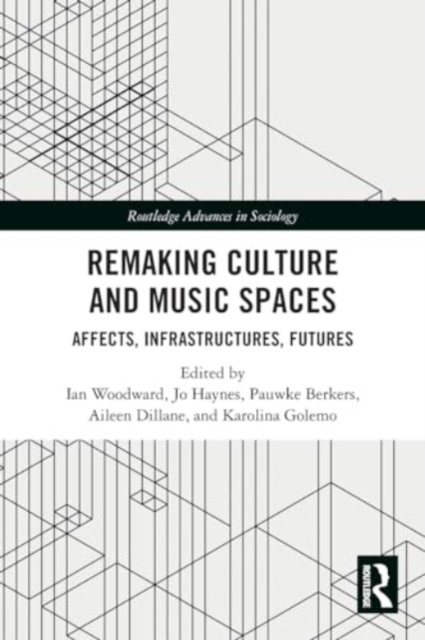
Remaking Culture and Music Spaces : Affects, Infrastructures, Futures Paperback / softback
Edited by Ian (Syddansk Universitet, Denmark) Woodward, Jo (University of Bristol, UK) Haynes, Pauwke (Erasmus University Rotterdam, Netherland) Berkers, Aileen (University of Limerick, Ireland) Dillane, Karolina (Jagiellonian University in Krakow, Poland) Golemo
Part of the Routledge Advances in Sociology series
Paperback / softback
Description
This collection analyses the remaking of culture and music spaces during the ongoing COVID-19 pandemic.
Its central focus is how cultural producers negotiated radically disrupted and uncertain conditions by creating, designing, and curating new objects and events, and through making alternative combinations of practices and spaces. By examining contexts and practices of remaking culture and music, it goes beyond being a chronicle of how the pandemic disrupted cultural life and livelihoods.
The book also raises crucial questions about the forms and dynamics of post-pandemic spaces of culture and music.
Main themes include the affective and embodied dimensions that shape the experience, organisation, and representation of cultural and musical activity; the restructuring of industries and practices of work and cultural production; the transformation of spaces of cultural expression and community; and the uncertainty and resilience of future culture and music. This collection will be instrumental for researchers, practitioners, and students studying the spatial, material, and affective dimensions of cultural production in the fields of cultural sociology, cultural and creative industries research, festival and event studies, and music studies.
Its interdisciplinary nature makes it beneficial reading for anyone interested in what has happened to culture and music during the global pandemic and beyond.
Information
-
Pre-Order
- Format:Paperback / softback
- Pages:264 pages, 3 Tables, black and white; 6 Line drawings, black and white; 5 Halftones, black and white
- Publisher:Taylor & Francis Ltd
- Publication Date:27/05/2024
- Category:
- ISBN:9781032184999
Information
-
Pre-Order
- Format:Paperback / softback
- Pages:264 pages, 3 Tables, black and white; 6 Line drawings, black and white; 5 Halftones, black and white
- Publisher:Taylor & Francis Ltd
- Publication Date:27/05/2024
- Category:
- ISBN:9781032184999










